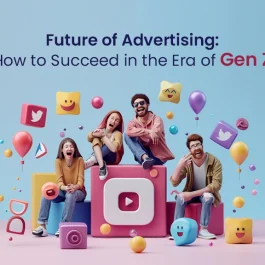4 min read
In the digital age, the quest for information is as boundless as the universe itself. Google, the celestial navigator of this vast informational cosmos, is on the brink of a new dawn with its generative models, heralding a future where the search generative experience reshapes our digital explorations. This evolution promises to transform the fabric of search, weaving together the threads of artificial intelligence, human curiosity, and the endless expanse of the internet. Let’s embark on a journey through the influence of Google’s generative models on shaping search results, navigating the promises and potentials of this new horizon.

Table of Contents
What is Google Search Generative Experience?
Fundamentally, the Google Search Generative Experience is a paradigm shift in the way we use search engines. It’s an odyssey from static results to dynamic, contextually rich interactions, powered by generative AI models. These models are akin to digital alchemists, capable of understanding and responding to queries with unprecedented depth, nuance, and relevance. This isn’t just about finding information; it’s about engaging in a dialogue with the vast knowledge of the internet, personalized and refined by AI.
The Magic Behind the Screen
Generative AI in Google Search is like having a wise sage at your fingertips, one who listens, understands, and converses with you, guiding you through the maze of information with insights and summaries drawn from the depths of the web. This experience elevates search from mere retrieval to an interactive journey, making the exploration of information as natural as a conversation with an old friend.
How Will Generative AI Change Search?
The dawn of generative AI in search heralds a new era of information discovery. Imagine typing a query and, instead of sifting through links, being presented with a synthesized, coherent response that feels tailor-made for your curiosity. This transformation means that the barrier between questions and answers becomes thinner, making the pursuit of knowledge a more fluid and engaging experience.
Personalization at Scale
Generative AI models promise personalization at an unprecedented scale, understanding not just the words of your query but the intent and context behind it. This means search results that are not only accurate but also aligned with your unique needs and preferences, transforming search into a deeply personal journey of discovery.
How Will Generative AI Impact SEO?
As the generative search experience reshapes how information is delivered, the strategies for SEO must evolve. Content creators and marketers are now tasked with optimizing not just for keywords but for contextuality and relevance to the user’s intent. The focus shifts towards creating content that feeds into the AI’s understanding, ensuring visibility in a landscape where traditional search results merge with generative responses.
Embracing the Era of E-A-T
In the era of generative AI, the qualities of expertise, authority, and trustworthiness—or E-A-T—have never been more important. Google’s models prioritize content that not only answers questions but does so with depth, accuracy, and reliability. For SEO practitioners, this underscores the importance of quality content that stands as a beacon of knowledge, recognized not just by human readers but by the AI that guides them.
Interactive and Conversational Search
As generative models continue to evolve, the future of search promises to be more interactive and conversational. We’ll see a shift from static pages of results to dynamic, real-time dialogues with AI, making each search a step in a continuous conversation with knowledge itself.
The Democratization of Information
Generative AI has the potential to democratize access to information, breaking down complex concepts into understandable, personalized explanations. This means a future where education and information are more accessible, empowering individuals to learn and explore like never before.
Ethical Considerations and the Path Forward
As we navigate this new frontier, the ethical considerations of AI in search become paramount. Ensuring the accuracy, fairness, and privacy of generative search experiences is a collective responsibility, guiding the development of these technologies along a path that respects and enriches the human quest for knowledge.
In Conclusion
The influence of Google’s generative models on shaping search results is a testament to the power of AI in bridging the gap between humanity and the boundless information of the digital world. As we stand on the brink of this new era, we’re not just witnessing a change in technology but a transformation in the very way we seek and interact with knowledge.
The journey ahead is one of discovery, challenge, and opportunity, inviting us to reimagine the potential of search in our lives. As we embrace the generative search experience, let us move forward with curiosity, embracing the promise of AI to enhance, personalize, and deepen our quest for understanding in the vast digital universe.
FAQ’s
1. What exactly is Google’s Generative Search Experience?
Google’s Generative Search Experience represents a significant leap in search technology, utilizing generative AI models to understand and interact with user queries in a dynamic, conversational manner. Instead of simply returning a list of links, this experience synthesizes information from various sources to provide comprehensive, contextually rich answers that feel tailor-made for each query.
2. What Distinguishes Conventional Search Algorithms from Generative AI?
Traditional search algorithms focus on matching keywords in user queries to those found in web content, ranking results based on relevance and authority. Generative AI, on the other hand, goes a step further by understanding the context and intent behind queries, generating responses that synthesize information from multiple sources, thereby offering a more nuanced and interactive search experience.
3. Will Generative AI Make SEO Obsolete?
No, generative AI will not make SEO obsolete. Instead, it will evolve the field, shifting the focus towards optimizing content for relevance, contextuality, and user intent rather than just keywords. SEO strategies will need to adapt to prioritize quality, expertise, and the user experience more than ever before.
4. Can Generative AI Understand and Respond to All Types of Queries?
While generative AI represents a significant advancement in search technology, it’s still evolving. It’s designed to understand and respond to a wide range of queries with remarkable accuracy. However, like any technology, it has limitations, especially with highly nuanced or new topics. Continuous improvements and updates are expected to expand its understanding and capabilities.
5. How Can I Optimize My Content for Google’s Generative Search Experience?
Optimizing content for Google’s Generative Search Experience involves focusing on creating high-quality, informative content that addresses specific user intents and questions. Incorporating the principles of E-A-T (Expertise, Authoritativeness, and Trustworthiness), ensuring content is well-structured and easy to understand, and staying up-to-date with Google’s guidelines are key strategies for optimization. Additionally, engaging with emerging technologies and understanding how AI interprets and uses content can provide insights into further optimization techniques.
Published: April 2nd, 2024








